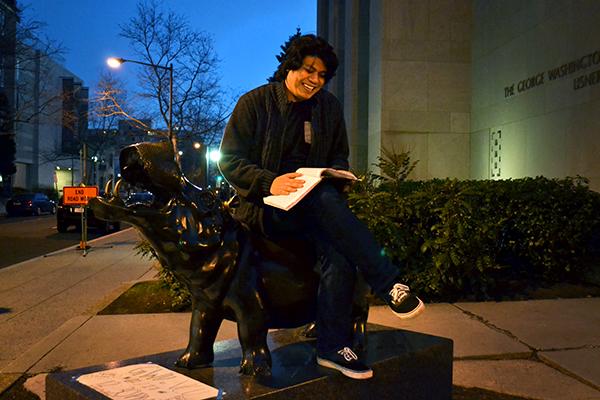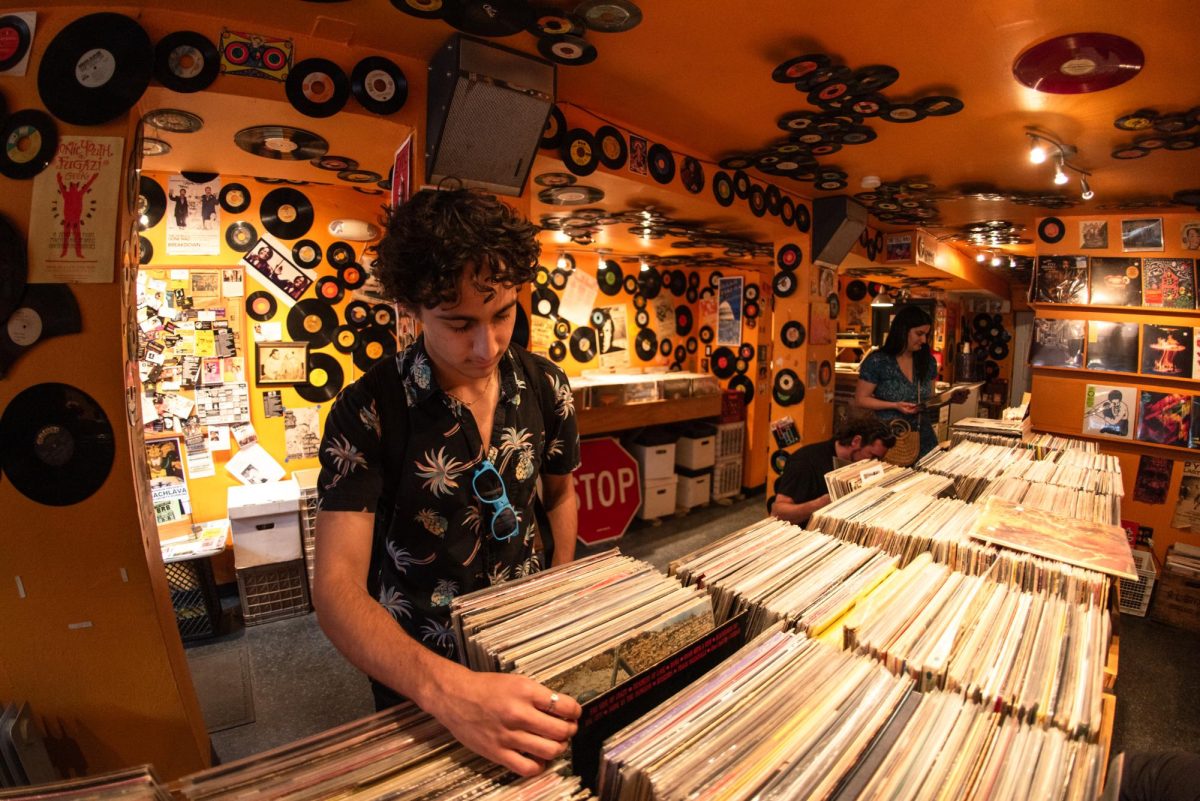For some students, stand-up comedy isn’t just what they watch on Netflix – it’s what they do in between going to class and studying.
Junior Christian Escoto and seniors Kevin Palermo and Jessy Morner-Ritt represent GW in the D.C. comedy community, performing stand-up around the city as well as in the Betts Theatre several times a week. The three of them will perform a comedy showcase on March 10 at the Betts Theatre.
Morner-Ritt, a political communication major, started practicing stand-up about a year and a half ago in her hometown of L.A. and spent the summer working for Funny or Die. She has performed shows at Big Hunt and The Black Cat and said she hopes to be involved in comedy after graduation.
Morner-Ritt said in an email that her favorite part about doing stand-up in D.C. is getting to be a part of the larger comedy community.
“The comics in D.C. each have such smart and unique comedy styles,” Morner-Ritt said. “It’s a very cool thing that I get to learn from these comics that I really respect.”
Escoto and Palermo met at a festival hosted by receSs, a student sketch and improvisational comedy group on campus, and both began by attending open mics at the Comedy Spot, a club located on Connecticut Avenue.
As young, 18-year-old beginner comics, they played it safe by going for sex jokes.
“Part of the reason that you’re going to get a laugh from that is because you look young and you’re talking about this stuff,” Palermo said, crediting his “baby face” for helping his jokes land. “But that becomes kind of unsatisfying very quickly and so that’s when you start to become a better writer.”
Finding their style
Escoto, an electrical engineering major from the D.C. area, said that developing personal identity and style is difficult for young comics.
“As long as I keep listening to my own voice, I feel like I’m on the right path to originality, rather than being a cheap knock-off,” he said. “The more you do material about your own personal life, the more it doesn’t sound like others.’”
Palermo, a political communication major, said that his style is still influenced by comedians he admires like George Carlin, Louis C.K. and Lenny Bruce, but that it’s also something unique that other people can’t copy. He said his style changes based on the bit he is doing.
In narratives, for example, Palermo described himself as a “put-upon protagonist who has just now realized how weird his prior experiences were,” citing an example of his brother convincing him he had AIDS when he was 9.
Palermo explained that being the only person who can do what you can do is the “premium for comedians.”
Taking their talents off campus
Palermo said that open mics are a necessity for beginner comics – you can practice your material and see whether or not the audience likes it, which helps you know how to tweak it, he said.
“In a bigger audience, there’s somebody to laugh at every joke,” Palermo said, who has performed at The Big Hunt and D.C. Improv Comedy Club. “You need open mics to keep you grounded.”
But not every open mic goes smoothly, Escoto said. He said it’s important to keep trying jokes out, even if they don’t always do well with the audience.
“As long as you keep doing it, it just makes you more invincible. Bombing can’t destroy you,” he said.
Escoto said he begins thinking of material by starting with an interesting event or observation and adjusting the idea until it seems funny to him.
“I try not to worry so much about getting gigs,” he said. “I mainly focus on being funny, then the gigs will show up later.”
Escoto said he hopes to continue stand-up after graduating, perhaps in a city like New York or Chicago. But he said thinking about comedy just in terms of getting famous is “toxic.”
“Where I would love to be is at the point where I can just do creative stuff and people will pay me for it,” Escoto said. “But if I can just pay the bills, I’ll be happy.”







